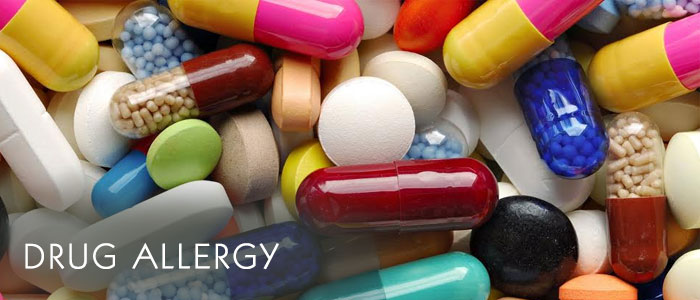
Drug Allergy Overview
Adverse reactions to medications are common, yet everyone responds differently. One person may develop a rash or other reactions when taking a certain medication, while another person on the same drug may have no adverse reaction at all.
Only about 5% to 10% of these reactions are due to an allergy to the medication.
An allergic reaction occurs when the immune system overreacts to a harmless substance, in this case a medication, which triggers an allergic reaction. Sensitivities to drugs may produce similar symptoms, but do not involve the immune system.
Certain medications are more likely to produce allergic reactions than others. The most common are:
• Antibiotics, such as penicillinThe chances of developing an allergy are higher when you take the medication frequently or when it is rubbed on the skin or given by injection, rather than taken by mouth.
• Aspirin and non-steroidal anti-inflammatory medications, such as ibuprofen
• Anticonvulsants
• Monoclonal antibody therapy
• Chemotherapy
- Skin rash or hivesA "pseudoallergic" or "anaphylactoid" drug reaction looks like an allergic drug reaction, but it is not allergic. This type of reaction can happen when you take the drug for the first time. This can occur with aspirin or X-ray dye. This can also happen with other drugs.
- Itchy skin
- Wheezing or other breathing problems
- Swelling of body parts
- Anaphylaxis, a life-threatening allergic reaction
- For a mild reaction, you may only have to stop the drug.What causes a drug allergy?
- For a more serious allergic drug reaction that is not life-threatening, your Allergist may give you:
An antihistamine (to counteract the histamine released into your body during the reaction)
A non-steroidal anti-inflammatory drugor a corticosteroid (to reduce inflammation)
